BCAA Benefits for Women: Do You Need Them?
Author:
Unlock your full potential by engaging with our experts and community! Have questions about your fitness journey or looking for expert advice on weightlifting techniques? Don’t hesitate — leave a comment below and Oleksandr Maksymenko will provide a personalized answer and insights to help you reach your goals.
Torokhtiy is reader-supported. Some links are affiliate links, and we may earn a commission at no extra cost to you. See our disclosure page for details.
Ever wondered if BCAA is worth adding to your fitness routine? You’re not alone because many women are asking themselves just that. A lot of them turn to BCAA to help boost their workouts and recovery, but do you really need them?
In this article, that’s exactly what we’ll explore. Improving muscle recovery, reducing fatigue, supporting lean muscle growth… BCAA have a range of potential benefits and we’ll break them down for you. WE’ll let you know what BCAAs are, how they work, and how they might help your each your fitness goals.
Let’s dive right in!
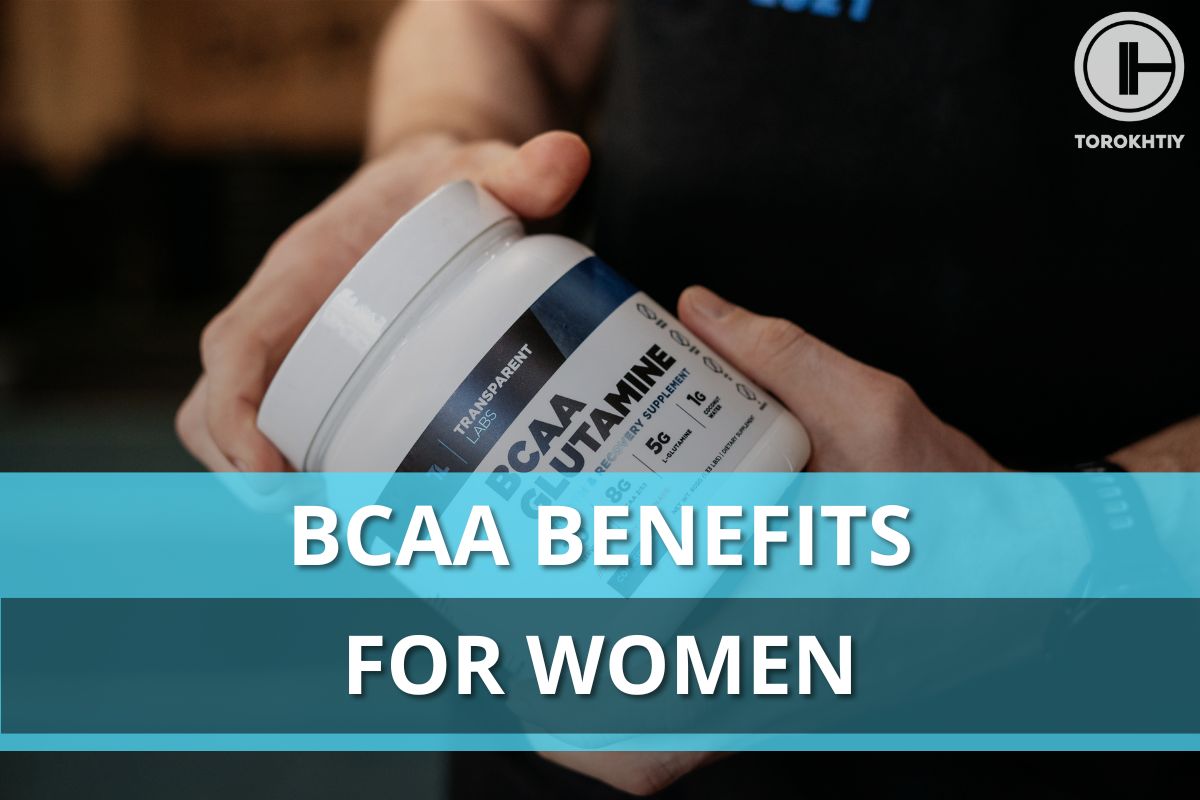
What Are BCAAs and Do We Need Them in the Form of an Isolated Supplement?
BCAAs (short for Branched-Chain Amino Acids) make up 3 of the 20 total amino acids that make up protein. The Branced-Chain Amino Acids are leucine, isoleucine, and valine. BCAAs get their name because of their chemical structure, which contain non-continuous links of carbon bonds, thus giving them a “branched” appearance.
Out of the 20 amino acids, 9 are essential. This means the human body can’t produce them on its own, and they need to be found through diet. BCAAs make up 3 of the 9 essential amino acids. The recommended ratio of BCAAs is 2 parts Leucine, to 1 part each Isoleucine and Valine. This is the BCAA ratio of all the supplements featured on our list.
The recommended daily dose of BCAAs is around 9g for women and 12g for men. While the products on our list have a slightly lower serving size than this, considering the BCAAs found in food, one serving per day should be enough to hit this goal.
BCAAs are especially important for the role they play in muscle energy. The body uses BCAAs for fuel during a workout, with anywhere from 3-18% of workout energy coming from BCAAs. BCAAs have also been shown to reduce soreness, and improve recovery. BCAAs make up around a third of all muscle tissue, showing that they’re critical for exercise performance and muscle growth.
It’s worth noting, of course, that BCAAs can absolutely be found in significant doses through real food instead of supplements. Some great sources of BCAAs include beef, chicken, eggs, and dairy. Unfortunately, for this reason, it can be much more difficult to get enough BCAAs on a vegan or vegetarian diet through food alone.
While BCAAs can be found in real foods, supplementation may come in handy for a variety of reasons. If you’re a vegan or vegetarian, it’s entirely possible you’re not getting enough BCAAs through food alone. Also, if you’re eating in a caloric deficit, you may be struggling to get enough BCAAs as well.
Finally, if you’re doing a lot of intense exercise, it may be a good idea to ensure you’re getting enough BCAAs through supplementation.
Ultimately, BCAA supplementation is likely not necessary for the majority of women, however, if you fall into one of these 3 categories, it may be worthwhile to begin supplementing. If you’re experiencing symptoms of low energy, or increased soreness, then you should consider trying out BCAAs as well.
In What Cases Can Taking BCAAs Be Justified?
As we mentioned above, there are several cases where we recommend women supplement with BCAAs. Here they are covered in more detail.
While you may not need to supplement with BCAAs even if you fall into these categories, these are the groups of women that will most likely benefit from BCAAs. Also, even if you don’t fall into any of these categories, if you’re experiencing fatigue, or heavy soreness, this could be a sign that BCAAs are right for you.
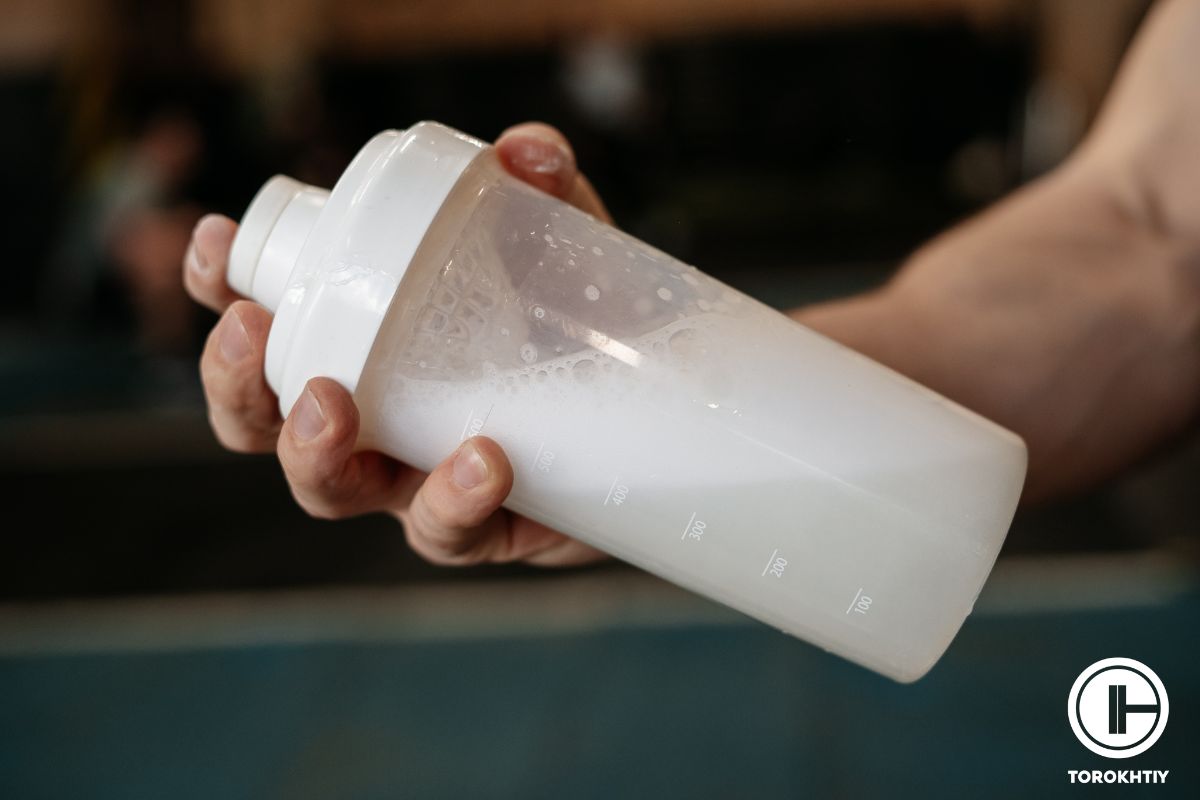
1. Vegans and Vegetarians
Many of the main food sources of BCAAs are either meat or dairy. This means it can be difficult for vegans and vegetarians to get enough BCAAs in their diet. However, there are still some plant-based foods rich in BCAAs that you can incorporate before trying supplementation. These include tofu, quinoa, red lentils, hemp seeds, and peanuts.
If you’re a vegan or vegetarian noticing symptoms of fatigue and soreness, then supplementation may benefit you.
We recommend trying to get as many BCAAs through whole foods as possible, so try incorporating more of the foods listed above and see if that makes a difference! Regardless, supplementation is one of the easiest ways for vegans and vegetarians to hit their BCAA goals without having to worry about it.
2. Caloric Deficit
Similar to vegans or vegetarians, it may be difficult for people on a calorie deficit to get enough BCAAs in. With this being said, on a cut you should always be prioritizing protein and proper nutrition to ensure you aren’t becoming deficient in anything.
If you’re not getting enough BCAAs in on your diet, it could be a sign that you need to rework your meal plan to incorporate more complete proteins and nutrient dense foods. However, supplementing with BCAAs may be useful to get some extra peace of mind on your diet. With this being said, there’s not much added benefit beyond this to using BCAA for women’s weight loss.
3. Intense Exercise
Finally, supplementing with BCAAs may be especially useful for those engaging in intense exercise such as endurance training. With your body using up BCAAs for muscle energy, and BCAAs being shown to help with muscle recovery, it may be a good idea to incorporate BCAAs into your pre or post-workout supplement stack.
However, it appears that taking a whey protein supplement, or likely eating BCAA rich foods will produce similar results. In many cases like this, taking a BCAA supplement is more a matter of convenience rather than necessity. Overall, an amino acid supplement for women who exercise regularly and intensely may be greatly beneficial.
4. Fatigue and Soreness
Even if you don’t fall into any of these categories, you may still benefit from amino acid supplementation. The main indicators that you may need more amino acids in your diet is if you’re regularly fatigued and sore after exercise. It should be your first priority to get more BCAAs in through your diet, but if the symptoms persist, then supplementation may make a difference.
Ultimately, if these symptoms persist even with BCAA supplementation, it may be a sign of a different deficiency or health condition. While different supplements may be helpful, you should always consult your doctor if you’re concerned about any issues you’re experiencing.
How to find the best BCAA for women?
If you’ve decided that BCAA supplements are right for you, there are several characteristics you’ll want to consider before making a purchase. Here they are covered in more detail.
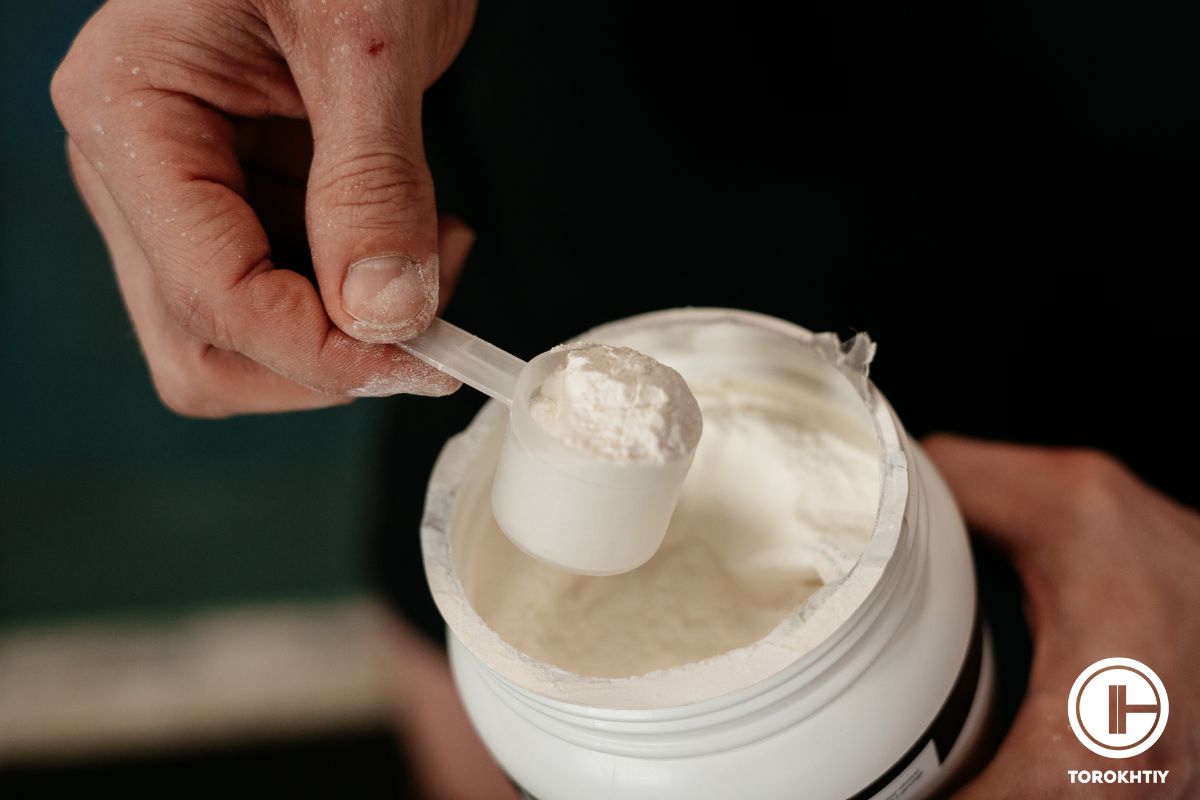
1. Total BCAA Content/Ratio
First and foremost, if you’re looking to buy a BCAA supplement, you’ll want it to have a high total BCAA content, and the proper ratio between amino acids. With the products on our list ranging from 4,000mg to 8,000mg of BCAAs per serving, there’s a fairly wide range to choose from.
If you’re someone just looking to get an extra boost of BCAAs during your workout, choosing a supplement with a lower dose may be a good choice. However, if you’re someone looking to get the majority of your BCAAs for the day in through a supplement, you may want to go for a higher dose.
It’s also worth considering the BCAA ratio. Ideally, the supplement will have a 2:1:1 ratio of leucine to isoleucine and valine. All of the supplements on our list feature this ratio, but this is not true of all BCAA supplements on the market. Be sure to check the ratio before making a decision to ensure you’re getting the right balance of amino acids.
2. Extra Ingredients
Aside from pure BCAA content, you’ll want to take a look at what else you’re getting in your supplement. This includes things like glutamine, essential amino acid complexes, and coconut water powder.
By understanding all these different ingredients, and the value they provide, you can make a more informed decision on what you want in your supplement.
For example, if you’re looking to boost your performance while exercising, glutamine may be appealing to you. Or, if you struggle to get enough complete proteins in, an essential amino acid complex may be helpful. Just keep in mind that supplements with these extra ingredients are often more expensive than supplements without them.
Be sure these extra ingredients are actually worth the money to you before making a purchase.
Extra ingredients also include things like sweeteners, preservatives, and dyes. Although most of the BCAA supplements on our list don’t contain any artificial ingredients, if this is something you prefer to avoid, it’s always worth double checking the ingredients list for any supplement you’re looking to buy.
3. Taste/Flavor
Although not as important as some of the factors, you should make sure you’re going to enjoy drinking whatever BCAA supplement you decide to purchase! It’s worth taking a look at product reviews to see what customers say about the taste and texture of whatever supplement you’re looking at.
4. Value For Money
Finally, and perhaps most importantly, is the value you’re getting for your money. This goes beyond just price per serving, as you should consider all the factors that go into a supplement when deciding how much it’s worth to you.
BCAA GLUTAMINE by Transparent Labs
- Suitable for Vegans: Yes
- BCAA’s per Serving: 8,000mg
- Servings per Container: 30
- Serving Size: 19.6g
- Additional Ingredients: L-Glutamine, Coconut Water Powder
- Price per Serving: ~$1.33
- Company Founded: 2012
- Recommended by Athletes: Hafthor Bjornsson, Paul Sklar, Sean Harris
With 8,000mg of BCAAs per serving, this is one of the highest BCAA content supplements available. On top of this, it features glutamine, another amino acid that plays a valuable role in the body. Glutamine supplementation has been shown to both increase time to exhaustion and improve recovery.
On top of this, Transparent Labs also contains coconut water powder to aid with hydration.
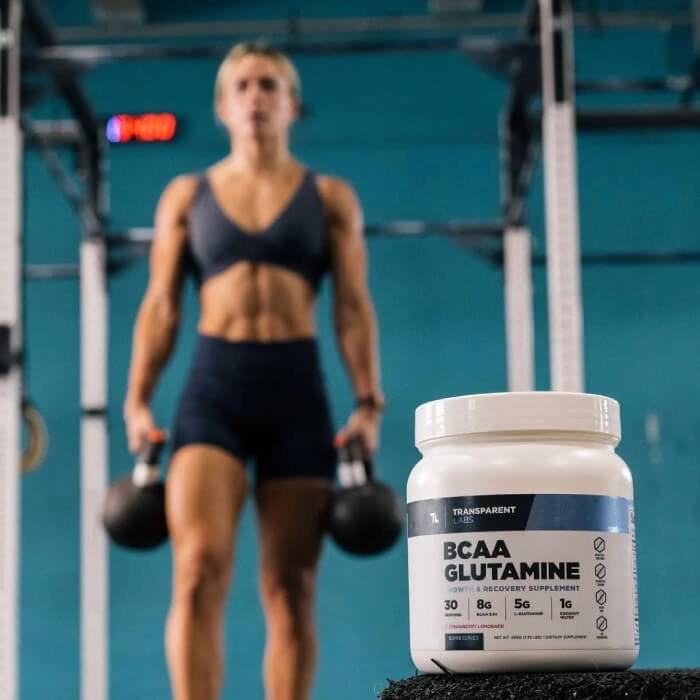
Transparent Labs also comes in 4 unique flavors: sour green apple, tropical punch, strawberry lemonade, and blue raspberry. Also, like all of Transparent Labs’ products, there are no artificial ingredients whatsoever in their BCAA formula.
The one main drawback to such a high quality product is its price. At around $1.33 per serving, this is one of the more expensive options on our list.
Overall, this is one of the highest quality, and complete BCAA supplements available, even though it comes at a fairly hefty price.
When And How Is It Better To Use BCAA?
With BCAAs, there is some debate as to whether it’s best as a pre-workout, intra-workout, or post-workout supplement. You may be wondering, does it even matter when I drink it? The answer is quite simply, no!
Ultimately, it’s more important that you’re getting enough BCAAs throughout the day instead of getting them all at one specific time. Whether you drink BCAAs right when you wake up, or right before you go to bed, they should have the same effect when taken over a long enough time period. Therefore, feel free to take your BCAA whenever it feels right for you!
With this being said, if your BCAA supplement contains some sort of hydration formula, it may be beneficial to drink it during or around your workout to maximize its benefits. However, this also isn’t necessary to stay hydrated during your workout – regular water will do just fine!
In terms of how to take your BCAA, we always recommend following the instructions on the package. For most BCAAs, you should mix one scoop with 1-2 cups of water or your favorite beverage!
It’s worth noting that although all of the products on our list come in powder form, you can also find BCAA pills for women. If you prefer the ease of taking supplements in capsule form, these may be a good choice for you!
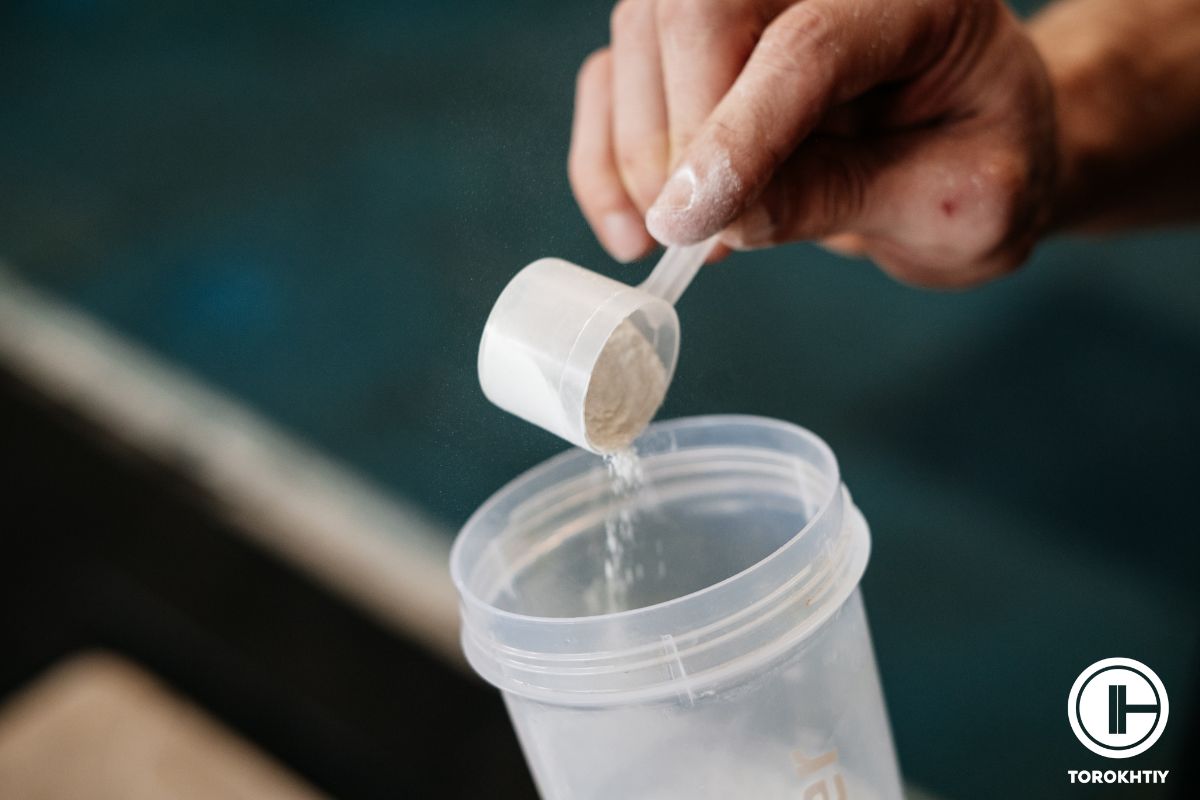
Are BCAAs Safe to Use?
Yes! BCAAs are not only safe, but are necessary for your body to function at its best, especially during exercise. BCAAs are essential amino acids that are necessary for things like exercise recovery and muscle protein synthesis. While most people get enough BCAAs through whole food sources, some people will benefit greatly from added supplementation.
While most people will not notice significant results from BCAA supplementation, it is still completely safe for the vast majority of people. If you’re concerned at all about the potential health risks associated with BCAA supplementation, please consult your doctor.
FAQ
Should Women Take BCAAs?
It depends! While most women likely get enough BCAAs in through diet alone, certain women will benefit greatly from supplementation. These include vegans and vegetarians, those in a caloric deficit, and those participating in intense exercise. If you are constantly fatigued or sore, this may be a sign you will benefit from BCAA supplementation.
Do BCAAs Really Make a Difference?
Once again, it depends. For people getting enough BCAAs in through their diet, supplementation will likely not make much of a difference. However, if you’re not getting enough BCAAs, supplementation will likely greatly improve your energy, recovery, and ability to gain muscle.
What Is The Best BCAA Ratio For Women?
The best BCAA ratio for everyone is 2:1:1 leucine to isoleucine and valine. This is because the recommended daily intake of leucine is around twice as much as it is for isoleucine and valine. This ratio will ensure your body is getting the proper amount of each BCAA to function at its best.
Does BCAA affect Hormones?
BCAAs perform several metabolic and signaling functions and may even play in hormonal secretion. While the full effects of BCAAs on hormone functions needs to be studied further, it appears that all amino acids play a valuable role in modulating anabolic action, such as stimulating protein synthesis and inhibiting protein breakdown across the body.
If you’re worried about any negative effects on female hormones, these concerns are not scientifically supported.
How Many BCAAs Should Women Take Everyday?
It’s recommended that everybody get around 40mg of leucine and 10-30mg of isoleucine and valine per kilogram of bodyweight. This means someone who weighs 150lbs should be getting around 4,000mg total of BCAA’s everyday. This is certainly achievable through diet, and very easy to achieve with supplementation.
Conclusion
Overall, BCAAs are some of the most widely used supplements available. Although not everyone will benefit from them, certain women will see noticeable effects from BCAAs, namely improved recovery, energy, and performance. Ultimately, we recommend BCAAs for vegans and vegetarians, as well as women in a caloric deficit, and those who exercise really hard. Anybody experiencing fatigue or soreness may benefit from BCAAs as well.
If you think you’d benefit from BCAAs, we recommend BCAA GLUTAMINE by Transparent Labs because it’s undoubtedly one of the best and complete BCAA supplements available.
Let us know if you decide to try it! We’d love to hear your thoughts in the comments below!
References:
- Piattoly, Tavis Joseph, “L-glutamine supplementation: effects on recovery from exercise” (2005). LSU Master’s Theses. 3783.
- National Research Council (US) Subcommittee on the Tenth Edition of the Recommended Dietary Allowances. Washington (DC): National Academies Press (US); 1989
- “A Primer On Branched Chain Amino Acids”, Literature Education Series On Dietary Supplements (2009)
- Emily Adams, “BCAAs for Women: What You Need to Know,” Lionel University, https://blog.lionel.edu/bcaas-for-women
- Mariah, “BCCAs and Their Benefits,” Oxford Referencing Guide, https://u.osu.edu/bruns.179/2020/12/11/bccas-and-its-benefits/ (accessed December 11, 2020).
- Kyla N. Marquez , Effects of Branched Chain Amino Acid Supplementation on PostExercise Muscle Reco cise Muscle Recovery and Muscle Gr y and Muscle Growth (Grand Valley State University , 2022), 5.
- Milan Holeček, “Branched-chain amino acids in health and disease: metabolism, alterations in blood plasma, and as supplements,” Oxford Referencing Guide, https://nutritionandmetabolism.biomedcentral.com/articles/10.1186/s12986-018-0271-1 (accessed May 3, 2018).
- K Sreekumaran Nair, Kevin R Short, “Hormonal and signaling role of branched-chain amino acids,” National Library of Medicine, (2005)
- Photos are made by Torokhtiy Media Team.
Why Trust Us?
With over 20 years in Olympic weightlifting, strength training, nutrition coaching, and general fitness our team does its best to provide the audience with ultimate support and meet the needs and requirements of advanced athletes and professional lifters, as well as people who strive to open new opportunities and develop their physical capabilities with us.
By trusting the recommendations of our certified experts in coaching, nutrition, and sports training programming, as well as scientific consultants, and physiotherapists, we provide you with thorough, well-considered, and scientifically proven content. All the information given in the articles concerning workout programming, separate exercises, and athletic performance, in general, is based on verified data.
The product testing process is described in more detail here.
Author: Oleksandr Maksymenko
Certified Sports Nutritionist,
MSc Sports Dietetics
Specializing in: Weight management, Fitness / Sports nutrition
Oleksandr is a professional fitness nutritionist certified by the Fitness Professional Association (FPA). He follows the principles of evidence-based dietetics and fosters a healthy relationship with food in his clients, ensuring there are no strict prohibitions on their favorite foods or frequent lapses. His primary goal is not only to achieve results for you but also to sustain them over the long term, all while enjoying tasty and delicious food.



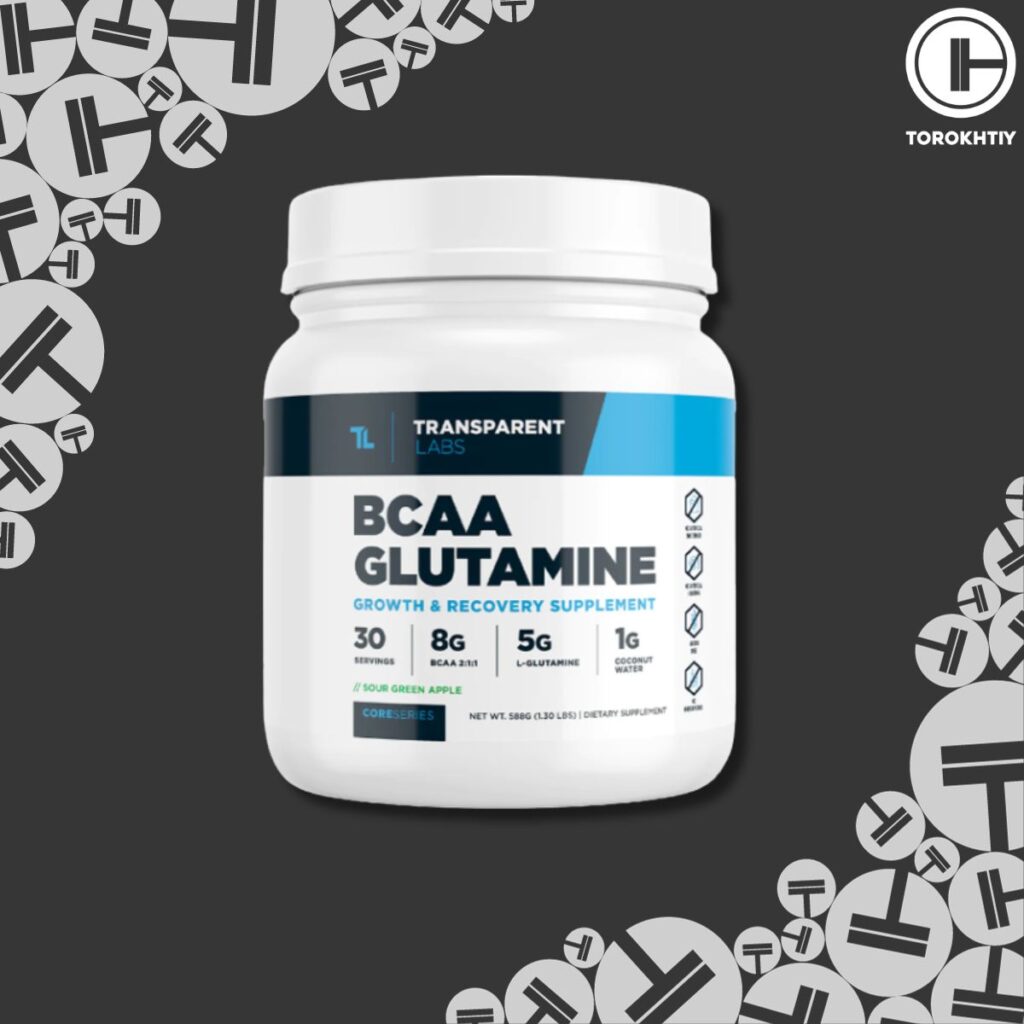
Still have questions after reading our article? Unlock your full potential by engaging with our experts and community! Don’t hesitate — leave a comment below and Oleksandr Maksymenko will provide a personalized answer and insights to help you reach your goals.